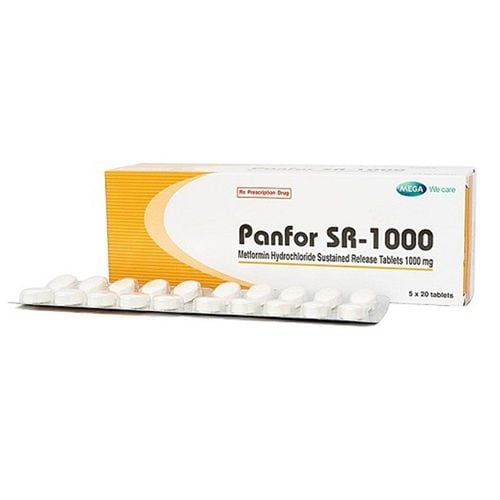This is an automatically translated article.
Zinc is a very important element for the development of children. Therefore, zinc supplementation for children is essential, especially for children with stunting malnutrition.
1. Learn about stunting malnutrition
Malnutrition is a condition in which the body is deficient in protein - energy and micronutrients (due to disease or reduced food consumption). Malnutrition and stunting is a condition in which a child does not reach the standard height according to age and sex standards. This is a form of chronic malnutrition, caused by a long process of malnutrition or repeated infections of the child.
Factors related to stunting in children include: low birth weight, household economy, maternal nutritional status, other diseases such as diarrhea, fever, etc. .. Malnutrition and stunting is a factor that increases the risk of infant mortality, causes health deterioration for children from infancy to adulthood, reduces learning ability and labor productivity, increase the risk of diseases such as diabetes, cancer, ... later.
2. The role of zinc in the health of malnourished children with stunting
The height and weight development of children depends a lot on genetics and nutrition and diseases. Among them, nutrition is considered the most important external factor. Increasing nutritional supplements for infants and young children will have positive effects on the height development of children. For malnourished children, supplementing with zinc, iodine, vitamin A, etc. will help them catch up with growth.
It is undeniable that zinc brings many health benefits. They are:
Zinc participates in many components of enzymes inside the body, contributes to enhancing protein synthesis, cell division and increasing appetite; Zinc stimulates the activity of about 100 enzymes in the body. These enzymes are the catalysts for biochemical reactions in the body to aid in better digestion and absorption of nutrients; Zinc ensures that the immune system works effectively, protects the body against risk factors for disease, helps wounds heal faster, and contributes to the protection of taste and smell. If zinc is deficient, the metabolism of taste cells will be negatively affected, causing taste disturbances and leading to anorexia in children. From there, the child's body will be slow or stop developing, affecting growth in general. That is why children with zinc deficiency often suffer from anorexia , stunting and growth retardation - stunting malnutrition .

Kẽm có vai trò quan trọng vì vậy cần bổ sung kẽm cho trẻ
Zinc supplementation for children with stunting malnutrition helps to significantly restore the growth rate of children's height and weight, increase the levels of IGF-1 hormone (a very important growth factor in the body). . Besides, zinc supplementation also has a good effect on children's mental health. Children with zinc deficiency are often irritable. If enough zinc is added, zinc will transport calcium to the brain, helping to stabilize the baby's nerves.
3. Supplement zinc for children properly
3.1 The need to absorb zinc of each person The need to absorb zinc at different ages is as follows:
Children under 1 year old: About 5mg/day; Children 1 - 10 years old: About 10mg/day; Adolescents and Adults: About 15mg/day (men) or 12mg/day (women); Pregnant women: About 15mg/day; Breastfeeding women for the first 6 months: About 19mg/day; Breastfeeding women 6 - 12 months: About 16mg of zinc/day. In fact, the amount of zinc is absorbed by the body about 5mg per day, mainly in the duodenum and jejunum, a small part in the ileum. The absorption rate of zinc under standard conditions is about 33%.

Bổ sung kẽm cho trẻ và các đối tượng khác cần dựa trên nhu cầu hấp thu
Phytate in raw cereals, soybeans, high-fiber foods,... can reduce the absorption of zinc into the body. Therefore, parents should give children enough animal protein to overcome this limitation of phytate-rich foods (instead of reducing the consumption of plant-based foods); Calcium increases zinc excretion, reduces zinc absorption rate, so parents do not give children calcium at the same time as zinc; To increase zinc absorption, parents should give their children zinc supplements along with foods rich in vitamin C. In addition, in order to help stunted children develop height and good weight, parents should add vitamin A, iodine, iron, calcium, vitamin D,... for the baby.
In summary, zinc is a micronutrient that plays an important role in the development of height, weight, nerve and immune system of children in the first years of life. Children with stunted malnutrition often have zinc deficiency, so parents need to supplement zinc for children through diet and functional foods to ensure that the baby is provided with enough zinc to catch up with growth.
The improvement of symptoms can take place for a long time, so it is recommended that parents be calm and persistent when supplementing with substances. In particular, the use of functional foods should choose those of natural origin that are easily absorbed, do not allow simultaneous use of many types or continuously change the types of functional foods.













